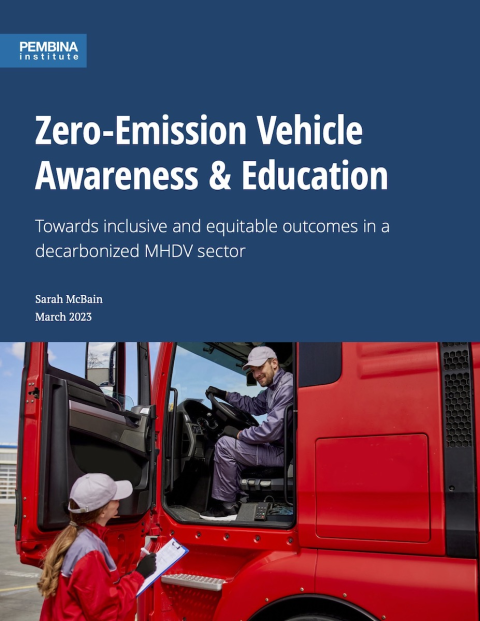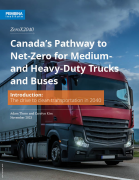The medium- and heavy-duty vehicle (MHDV) sector is a key facilitator of economic growth in Canada. The sector is also a major contributor to greenhouse gas (GHG) emissions. The latest data shows that nearly half of transportation emissions in Canada are generated by MHDVs. As fleets increase both in number and distance travelled, carbon pollution continues to go up. In contrast to projections indicating a rapid decline in emissions from light-duty vehicles over the next 20 years, MHDVs are projected to become the largest source of emissions in the transportation sector by 2030, if current trends continue.
The Government of Canada has identified transitioning the MHDV sector to zero emission vehicles (ZEVs) as critical to driving down transportation emissions and reaching Canada’s climate target of cutting emissions by at least 40% below 2005 levels by 2030, and achieving net-zero emissions by 2050. In addition to pursuing a combination of investments and regulations to support Canadians and industry in this transition, the federal government launched the Zero Emission Vehicle Awareness Initiative (ZEVAI) as a response to low levels of awareness and confidence in ZEVs among businesses and fleet operators and to accelerate widespread adoption.
This report offers insights into how equity, diversity and inclusion can be incorporated into ZEV awareness and education projects. Specifically, the research brings together insights from literature, industry, and subject matter experts to identify gaps and opportunities for ZEV knowledge building and education outreach within underrepresented and underserved groups in the MHDV sector.
This document was edited on June 30, 2023 to correct the definition of MHDV trucks on p. 5.
 Note: In 2022, the Pembina Institute submitted Zero-Emission Vehicle Awareness, Education and Engagement to Natural Resources Canada. This report explored opportunities to advance diversity, equity, and inclusion in ZEVAI projects within the passenger vehicle market.
Note: In 2022, the Pembina Institute submitted Zero-Emission Vehicle Awareness, Education and Engagement to Natural Resources Canada. This report explored opportunities to advance diversity, equity, and inclusion in ZEVAI projects within the passenger vehicle market.






